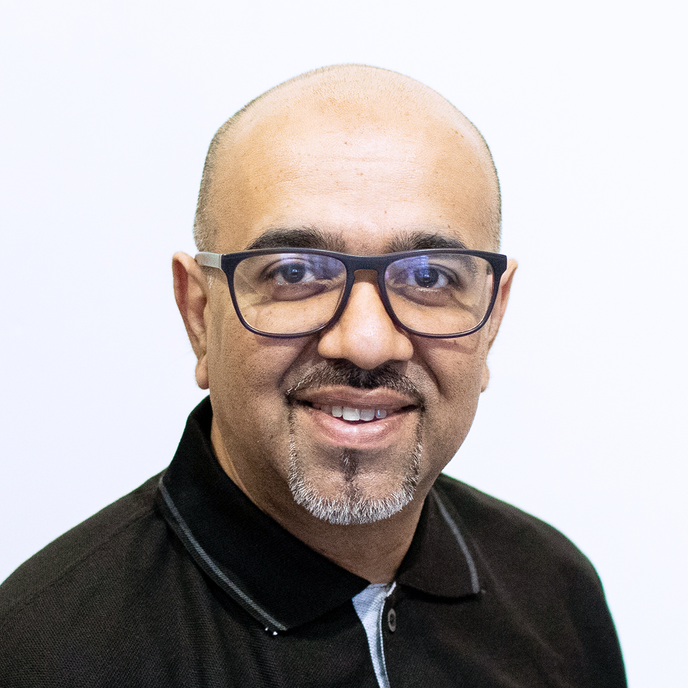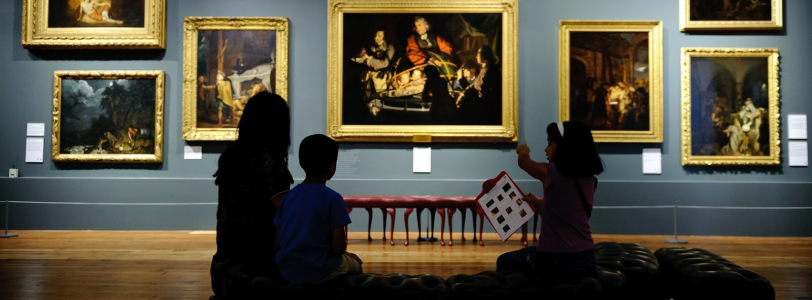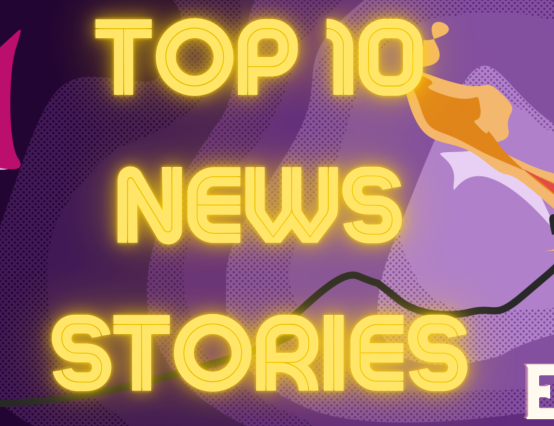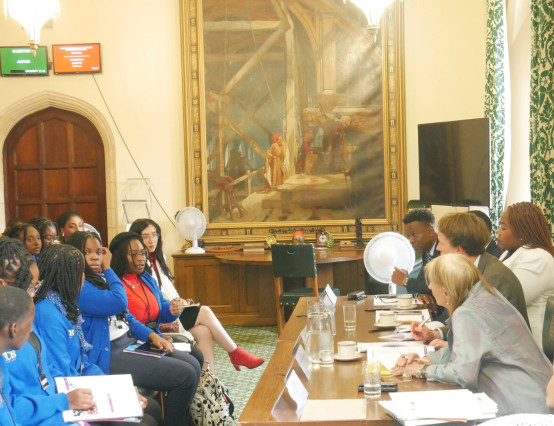Could you first introduce yourself to the reader?
My name is Mo Suleman, and I am the Finance Director at Derby Museums. I am a qualified chartered certified accountant and lead the finance and commercial aspects of the Museum. I am also the host of The Derby Chat Show on www.derbysound.org.uk showcasing the movers and shakers of Derby and awesome music from the 80s and 90s. I am also a former winner of the Derbyshire Chamber of Commerce Entrepreneur of the year.
What does your creative career involve? Give us the typical outline of a day?
Creativity usually comes from coming up with commercial events to hold at the museum where the focus is on d elivering a great experience and achieving a profit. It’s hard to give a typical day because each day can vary so much. Usually, there are meetings with the finance and commercial teams but then I also get involved in the museum programming events where I input from a finance/commercial perspective.
elivering a great experience and achieving a profit. It’s hard to give a typical day because each day can vary so much. Usually, there are meetings with the finance and commercial teams but then I also get involved in the museum programming events where I input from a finance/commercial perspective.
What does being a museum director mean to you?
It’s a great honour to be the finance director of Derby Museums. It’s one of the major regional museums in the UK and has a great impact on the city of Derby. Whenever I am asked where I work, and I reply with Derby Museums. You can usually see the person’s eyes light up and it’s that effect that makes you realise how lucky you are to work for Derby Museums.
What’s great about your job?
We have an amazing team and so many amazing people work at Derby Museums. The employee turnover at Derby Museums is incredibly low. That just goes to show what a great organisation it is to work for. Other aspects that are great about my job are seeing up close and personal, some amazing artefacts. How many people can say they have seen the drawings of Leonardo Da Vinci up close? Or handled a Shabti from Ancient Egypt? Not many.
What are the bits you don’t like or find challenging?
Funding is always a challenge. We get a fee from Derby City Council but they only confirm the amount on an annual basis and so it’s very hard to plan for the long term.
Do you think there’s any misconceptions with your job?
Yes, there is definitely a misconception that museums are boring. I myself had the idea until I joined Derby Museums. Make no mistake, it is a very fast-moving, innovative and hard-working organisation that is punching way above its weight and making a major impact in the city. There is so much going on, that it’s far from boring.
What are the highlights of your career to date?
Highlights have to be winning the Derbyshire Chamber of Commerce Entrepreneur of the year. That was a real personal highlight for me. Others include organising the first Derby Retro Arcade Weekender a couple of years ago. This is now one of the largest such events in the East Midlands and we are pleased to finally announce the dates for 2021. Watch this space if you like 80s/90s retro stuff.
Another highlight is the imminent opening of the Museum of Making at Derby Silk Mill. We've been working on this for over 10 years and we are due to open on 21 May after a massive £18m refurbishment. It will be an amazing museum of national significance and hope to inspire generations to come.
What was your career path into this job? Have you also worked outside the arts?
My career is not a typical arts route. I did A-levels, went to Loughborough University and did a Bsc (Hons) in Accounting and Financial Management, before qualifying as a Chartered Certified Accountant. I worked at PwC, the largest accountancy firm in the world, for a number of years and then eventually found myself at Derby Museums. My role is a finance/commercial one so has followed a fairly traditional route. I would say there are plenty of paths to my job but I would say that qualifying as an accountant (with any one of the main accountancy bodies, ACCA, ACA, CIPFA) is very important and getting good experience in working within a Not For Profit sector. A way to get your foot in the door is to volunteer for charities near you and get vital real-world experience.
Can you describe your biggest challenge so far in your career? How did you overcome it?
The biggest challenge was to move the museum away from being 97% dependent on public funds to a more balanced economy. When I joined, 3% of our income was from commercial or earned by the organisation. Last financial year, public funds only accounted for 55%, with 45% coming from commercial or earned activities. This was achieved by thinking more commercially, building in expertise for fundraising and recruiting great people to take us to that next level. A lot of work went in to streamline our cost base and improve financial management information allowing managers to make good decisions and not waste money.
Have you noticed any changes in the industry? If so, what?
There is definitely a move towards community collaboration. This was done previously but not to the same extent. This is really good as it makes the museum relevant to the community it serves and people have a sense of belonging with the museum. Another change has been around building commercial resilience. Museums can no longer rely wholly on the public purse and so needs to earn their own money by building different commercial income streams.
You’ve been granted the ability to send a message to 16-year-old you. What do you say?
I would say to that person to follow their passion. Whatever that passion is, follow it wholeheartedly and put all their effort into making their dream come true. Also, have a long term viewpoint. Don’t look too much to instant results, look at the longer horizon and make sure you are positioned well for that. Also, aim high. Don’t settle in the first instance with low goals. Aim the highest you can and see where you get from there.
Do you have any advice for young people interested in doing your kind of job?
I would say to get as much experience as possible. This is the opportunity where you can try lots of things, both work-related but also social. Go travelling, learn about yourself, how much resilience you have, what are those limits you have, what skills you excel in and more importantly what skills you are deficient in and so you can concentrate on improving those areas. Once you have these skills and experiences then you have a broader outlook and are a more rounded individual who will be able to add so much value to an organisation and that’s what you want to aim for.
You can find Mo's radio show here, or get in touch with Mo here.








0 Comments